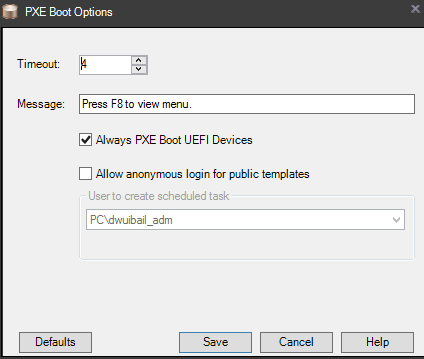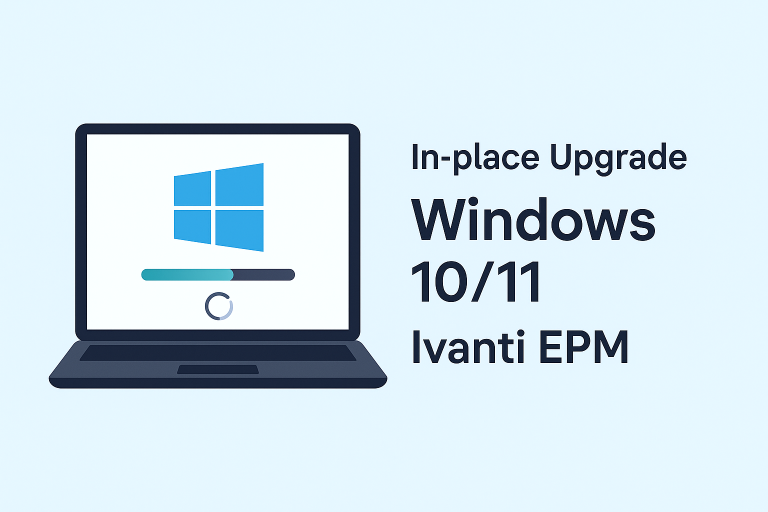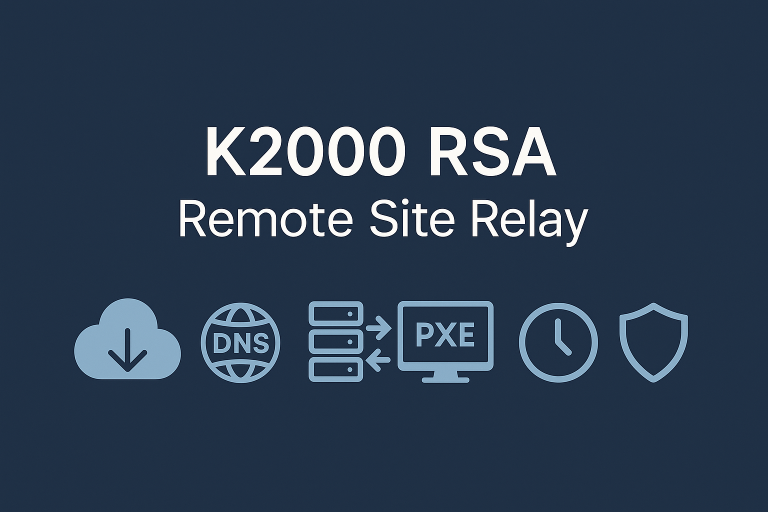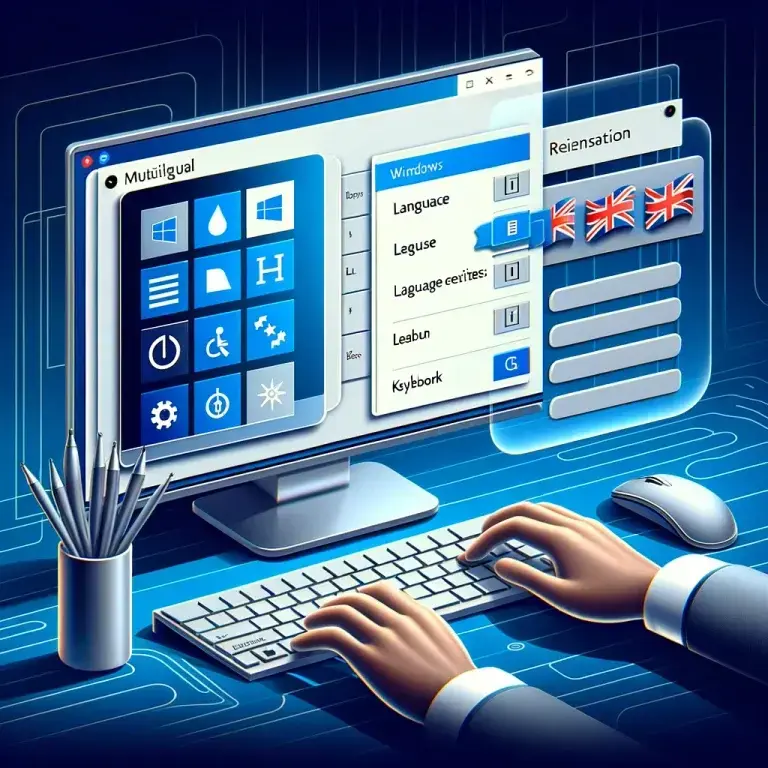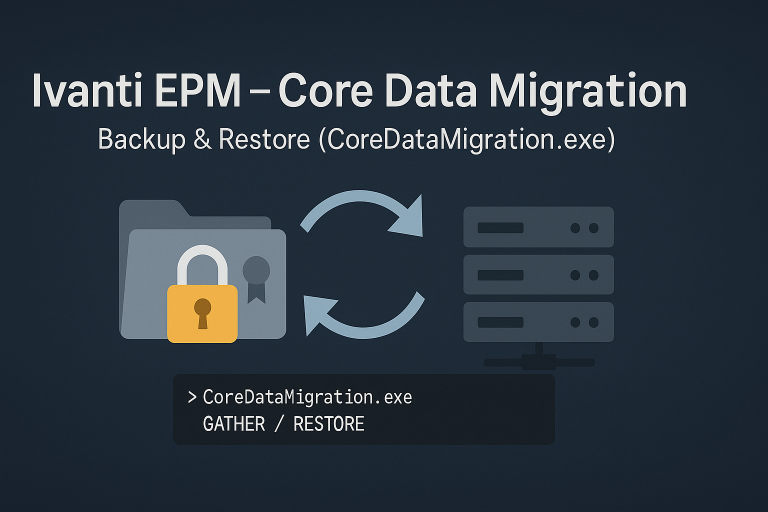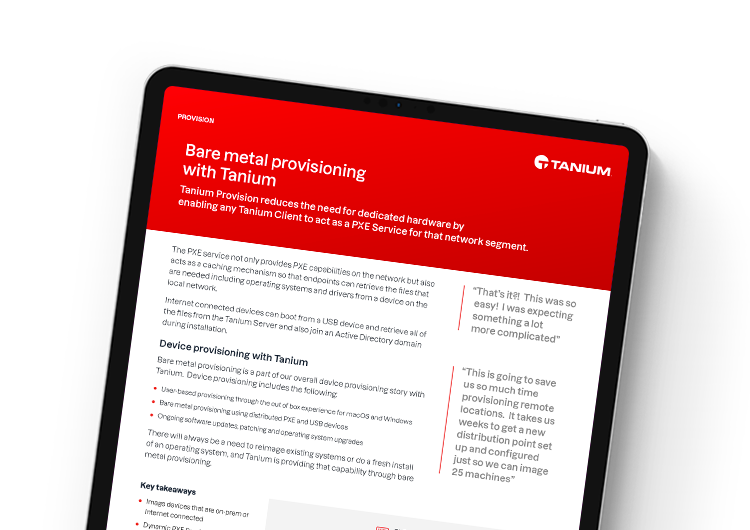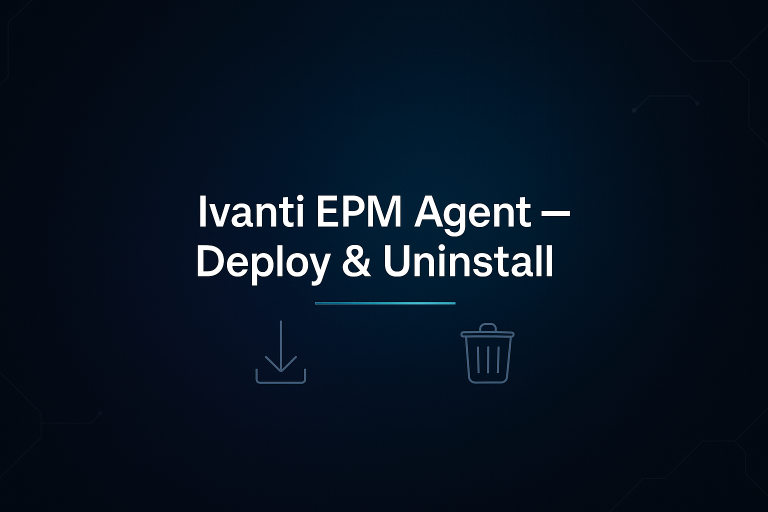To modify WinPE, I use a script that performs several tasks to customize the image according to my needs.
1. Install Windows ADK
Install the Windows ADK for Windows 10 on the machine where you will modify the WinPE. Do not install it directly on the core server.
- Download and install the Windows ADK
- Then install the PE add-on for the ADK
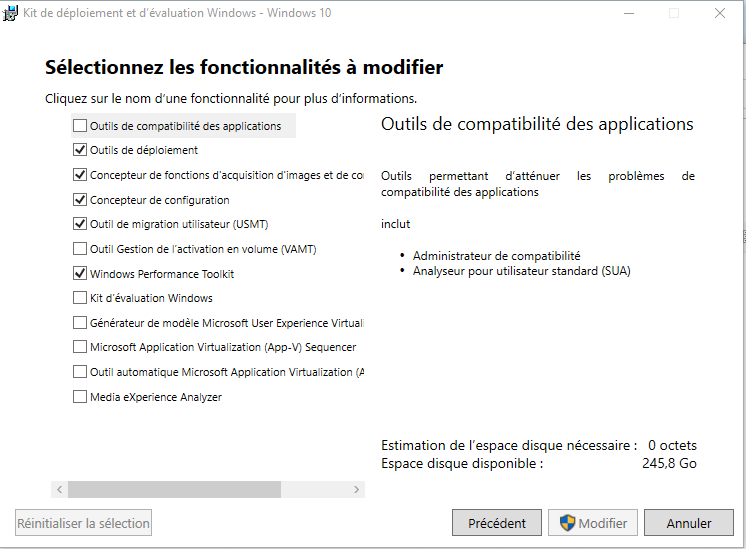
Source: Download
2. Identify and Add Necessary Drivers
WinPE Driver Packs
Download the drivers required for WinPE. For example, you can find HP WinPE drivers here: HP Driver Packs.
When to Add Additional Drivers
Add drivers only if:
- Network card not visible:
ipconfigreturns no adapter - Hard drive not visible:
diskpartreturns no disk
Note: Use only Windows 10 drivers if your WinPE is based on Windows 10.
To test a driver before integrating it:
- Copy the drivers to a USB stick
- In WinPE, run:
drvload path\file.inf
If the driver fixes the issue, add it permanently in the LANDESK console.
3. Automate WinPE Customization
The script performs the following actions:
- Backup the WIM file
- Edit
corename.txtto use the FQDN of the EPM server (not short name) - Edit
startnet.cmdto add a keyboard layout menu - Add Drivers on Drivers Folders
- Add required drivers into the image

Script repo: IVANTI/epm-manage-winpe at main · DavidWuibaille/IVANTI

4. Rebuild a Clean WinPE
To reset and rebuild the image:
- Copy images from
C:\Program Files\LANDesk\ManagementSuite\LANDesk\vboot\cleantovboot - Run
OSD.Upgrade.exeas administrator
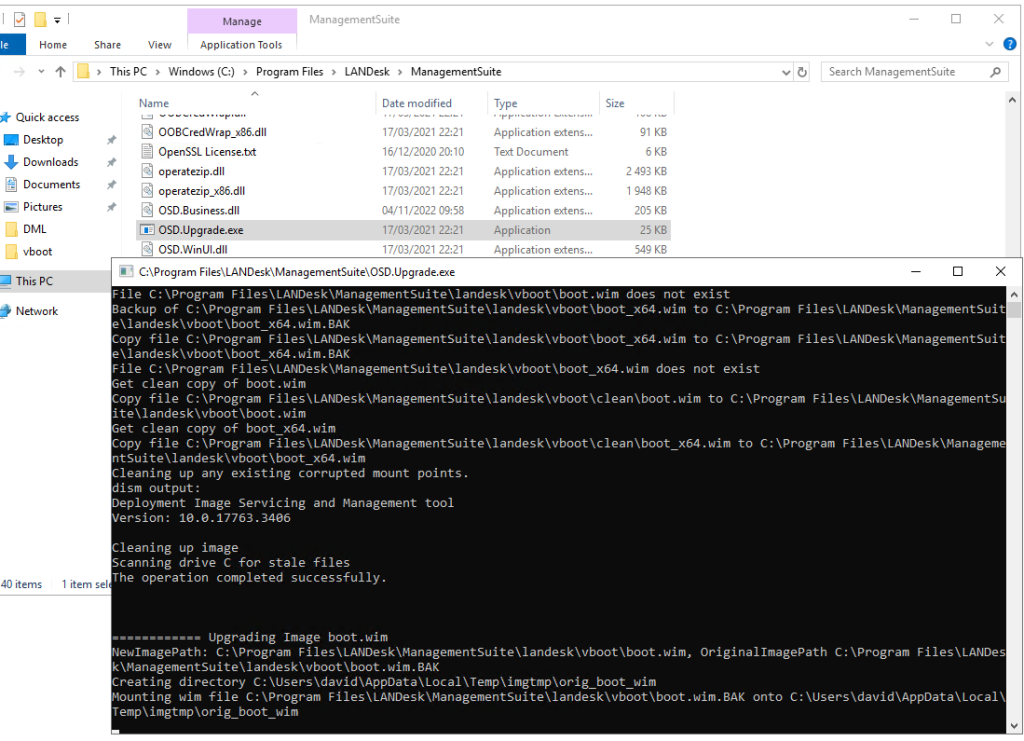
Ref: Ivanti: Clean Boot WIM Guide
5. Additional Configurations
UEFI vs Legacy Boot
By default, EPM uses:
- WinPE x86 for Legacy systems
- WinPE x64 for UEFI systems
To force x64 boot, rename winpe_x64.wim to winpe.wim in \\EPMServer\ldmain\landesk\vboot.
Custom Wallpaper
You can set a custom wallpaper in WinPE, for example to show a version number.
- Use a 1024×768 image
- Set it via the EPM assistant
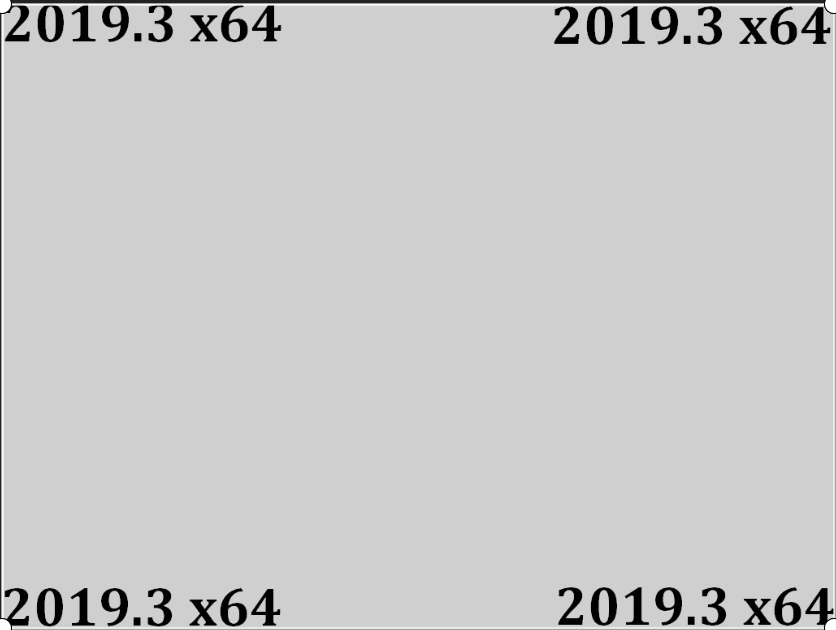
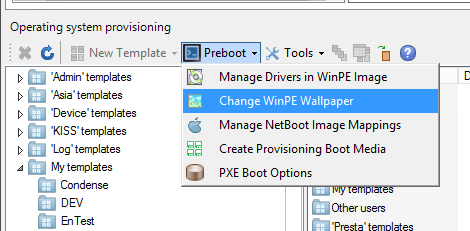
Add Drivers via EPM Console
- Add each .inf driver individually via the EPM assistant
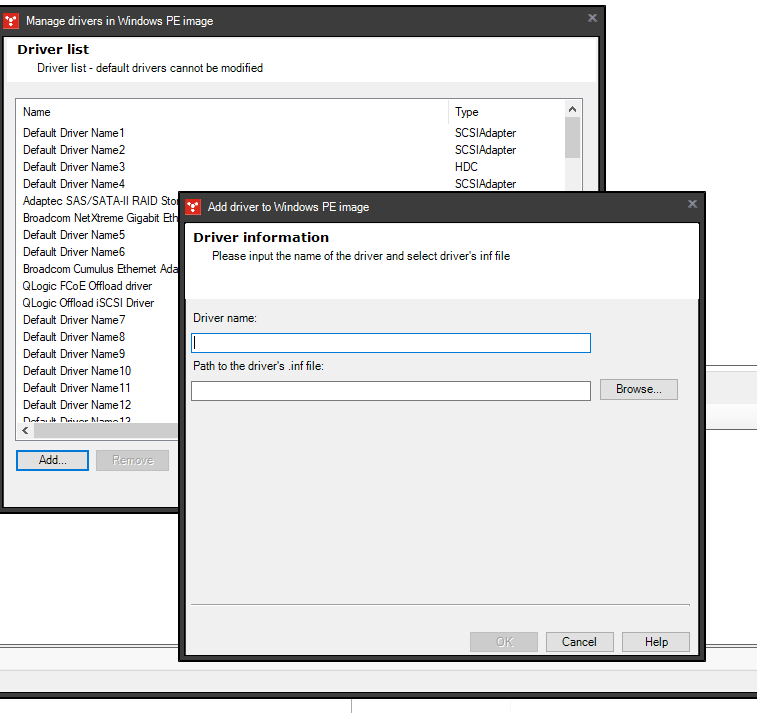
6. PXE Configuration
EPM PXE service is configured in 3 steps:
- Allow a device to act as PXE Representative
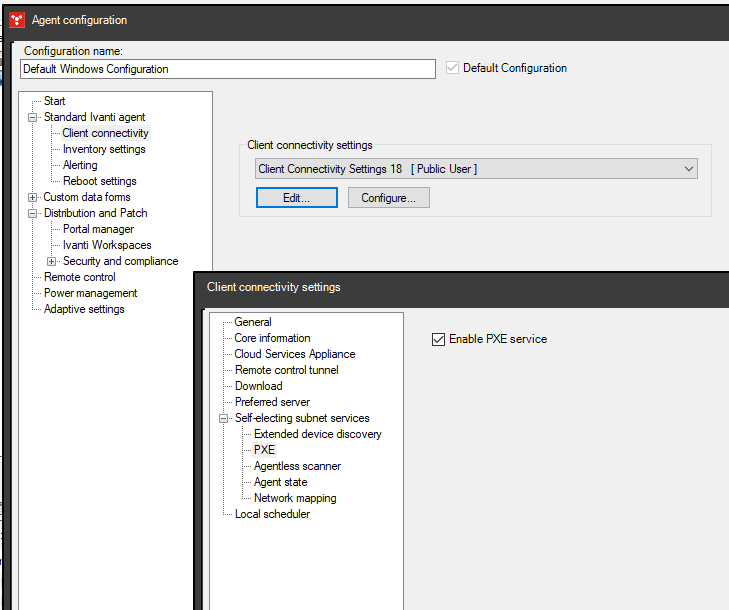
- Authorize PXE access per VLAN
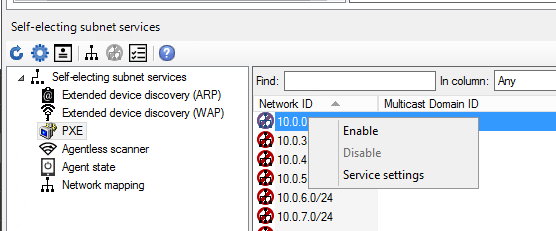
- Configure PXE options for UEFI support
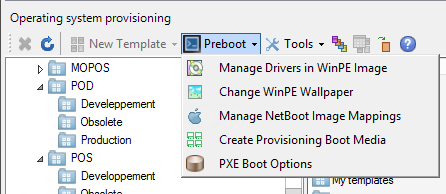
- Enable UEFI device
